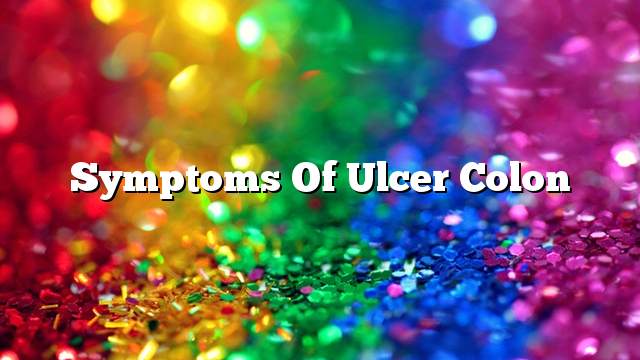Colorectal ulcer
Colon ulcers are common diseases affecting the intestines. Inflammation of the lining of the large intestinal mucous membrane causes ulceration, swelling and rotation between diarrhea and constipation, which causes the colon muscles to exert more effort to push the hard stool. This extra effort highlights the mucous lining of the colon and produces Pain and bleeding in addition to swelling in the colon area, which may call for surgical intervention in dangerous situations.
Symptoms of ulcer colon
- Chronic diarrhea mixed with mucus and blood is one of the most common symptoms.
- Temperature increases sometimes, especially in severe cases.
- Exits blood with stool.
- Rotation between constipation and diarrhea.
- Abdominal swelling accompanied by abdominal pain.
- Redness of the eyes sometimes.
- Fatigue, severe fatigue and pain in the joints.
- Loss of appetite, boredom and tightness.
Causes of ulcer colon
There may be no specific reasons for colorectal ulcers, but there are several factors and habits that contribute to the disease:
- Genetic factors: Some studies have found that people with autoimmune diseases are more likely to develop colitis.
- Dietary patterns: People who eat too much fiber-rich food are less likely than others, and infants who are breastfed are less likely to develop the disease.
- Psychological factors: where specialists point out that repeated psychological stress or nervous play an important role in the disease.
- Immune factors: when there are changes in immunity that lead to the production of antibiotics that attack the lining of the intestines.
- It may be due to unknown bacteria or virus.
Diagnosis of ulcer colon
The disease should be diagnosed as soon as possible due to its severity and its symptoms are similar to many other diseases. Diagnosis is done by:
- Through the wider disease.
- Take a colon sample and examine it using a colonoscope.
- The operation of radiographs in the abdomen.
- Check some of the following:
- Variable values during inflammation.
- Height (CRP).
- Anemia.
- High white blood cells.
- Check stool to make sure there is no bacterial colitis.
Possible complications of colon ulcers
- Intestinal perforation resulting in leakage of contents inside the abdomen.
- General weakness and weight loss.
- Severe bleeding.
- Toxic Megocolon, which expands in the intestine and becomes a balloon, which may cause the explosion.
- The situation may develop into colorectal cancer.
- Other complications are:
- Ulcers of the mouth.
- Rash.
- Conjunctivitis and eye infections.
- The occurrence of fatty deposits in the liver.
- The occurrence of gallstones.
- Arthritis of rheumatic spondylitis.
